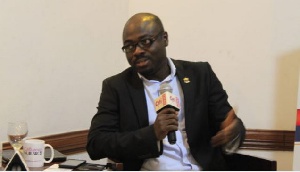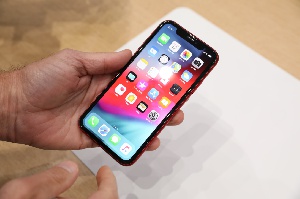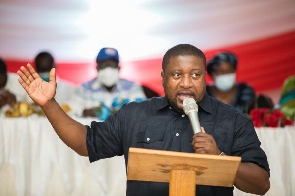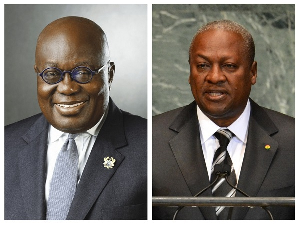An economist at the University of Ghana Business School, Dr. Lord Mensah, has said calls on the incoming Nana Akufo-Addo-led administration to renegotiate the ongoing International Monetary Fund (IMF) bailout are needless and will not yield any result.
According to Dr. Mensah, renegotiating the ongoing IMF deal is not needed because the IMF programme is yet to mature and the deal must be allowed to mature before any changes could be made to it.
Even though the current outgoing administration could not reap the full benefits of the three-year US$918 million Extended Credit Facility programme, the Akufo-Addo-led administration is likely reap the fruits of the programme, Dr. Mensah told the B&FT.
“Let me make this very clear; when it comes to the IMF and its allied agencies, it is not the government that goes into negotiation, but it is the country. The government which was voted by the people, always in such case, represents the country; so a new administration does not mean that the agreement has to be cancelled.”
“Personally, I don't think it is something that we need to consider -- we have to allow it to roll, let’s realise its maturity,” he added.
His call comes amidst concerns that the incoming government is likely to seek to re-negotiate Ghana’s ECF with the IMF in a bid to adjust some policies to assist their economic policies.
The IMF programme, Dr. Mensah said, was brokered in a bid to ease the country’s economic struggles and renegotiating it is not a path to take adding that a lot of efforts were put into implementing the programme and tweaking it before completion is not advisable.
Even before the country went to the polls, the IMF told the B&FT that conditions around the deal agreed last year is not likely to be renegotiated should there be a change of government.
The three-year IMF facility given to Ghana for balance of payments support was signed April 2015, with the US$918 million expected to be disbursed in eight equal tranches for the observance of the performance criteria and completion of reviews under the programme.
The objectives of Ghana going to the IMF for the bailout was to restore debt sustainability and macroeconomic stability, to foster a return to high growth and job creation through agriculture, and infrastructure investment, while protecting social spending;
It was also to strengthen the BoG’s monetary policy framework, while taking measures to ensure its full effectiveness and rebuild external buffers.











